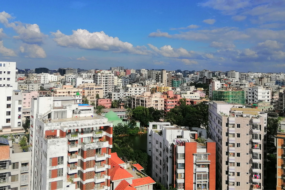Institutional investments in Indian real estate’s alternate asset classes touched a new high in 2022 at USD 0.9 billion, accounting for 18% of the inflows during the year. Investments into alternate assets, which saw a hike of 92% YoY in investments during 2022, has jumped more than 4-fold since 2019. Inflows have seen a sharp jump in 2022 as investors pumped in money into some of India’s emerging sectors like data centers, life sciences, etc. The growth of alternate sectors is led by investors looking to diversify their portfolio, given steady returns in some traditional asset classes.
Data centers accounted for about 52% of the investments in alternate assets, followed by others such as life sciences, holiday homes, hospitals, etc. However, the traction in investments was seen largely in data centers, with the other segments witnessing scattered deals.
| Year |
Investment Inflows in alternate asset classes (in USD mn) |
| 2018 | 20 |
| 2019 | 196 |
| 2020 | 359 |
| 2021 | 453 |
| 2022 | 867 |
Investments in alternate assets
While inflows in alternate assets peaked, inflows into the office sector continued its dominant streak in 2022 as well, accounting for 41% share in total inflows. Inflows into the sector rose 50% YoY led by some large deals. As investors eye building a portfolio that they can bundle up as REITs, they continue to see resilience in greenfield and ready-to-move assets. Majority of the deals in the office sector were driven by global investors, who are looking at income-yielding assets.
Investment Inflows
| Asset Class | Investments 2021 (in USD mn) | Investments 2022 (in USD mn) | % Change |
| Office | 1,318 | 1,978 | 50% |
| Retail | 77 | 492 | 537% |
| Alternate assets* | 453 | 867 | 92% |
| Mixed use | 182 | 464 | 154% |
| Industrial & Warehousing | 1,130 | 422 | -63% |
| Residential | 919 | 656 | -29% |
| Total | 4,079 | 4,878 | 20% |
Source: Colliers
Note: Alternate assets include data centers, life sciences, senior housing, holiday homes, student housing, etc
Apart from the income-yielding assets, there is a strong performance in the residential, retail, and hospitality sectors, where 2022 witnessed some large transactions and is likely to see more traction in the next couple of years. Performance credit, special situations, portfolio acquisitions, asset reconstruction, and related structures have been growing and are likely to attract more investments. During 2023, while we may see some postponement in deployment, there is ample dry powder in the market across core assets and alternate assets,”, according to Piyush Gupta , Managing Director, Capital Markets and Investment Services, Colliers India.
Overall investments in Indian realty touched USD 4.9 bn during 2022, registering a hike of 20% YoY. Institutional investors remain enthused by the potential of the Indian realty market, albeit in a cautious environment. This comes at a time when investors are staring at high interest rates, coupled with high inflation, apart from recessionary concerns and geopolitical tensions in some countries which may dampen fund deployment on a short-term basis.
| Year |
Investment Inflows across all asset classes in India (in USD mn) |
| 2018 | 5,757 |
| 2019 | 6,312 |
| 2020 | 4,833 |
| 2021 | 4,079 |
| 2022 | 4,878 |
Source: Colliers
Investment Inflows in India-
Global investors are attracted to the stable demand dynamics across asset classes, and opportunities to invest in operating and developing assets in the market. While global investors continue to dominate funding activities with higher participation in entity-led deals, domestic investors have also become more active in the market.
The share of domestic investment inflows in 2022 has surpassed the share in 2021, accounting for 22% share in total inflows. Residential assets continue to account for a chunk of domestic investments. Overall, though the total investment inflows are yet to outrun the pre-pandemic levels, investors remain invested in India’s real estate even in challenging times. Large global investors will continue to partner with domestic firms to set up investment platforms, according to Vimal Nadar, Senior Director and Head of Research, at Colliers India.



